FreeHacker Issue 1
A USER GUIDE TO DIGITAL LIBERATION
January 2021 – Issue 1


DEDICATED TO THE PUBLIC DOMAIN
ALL WRONGS RESERVED

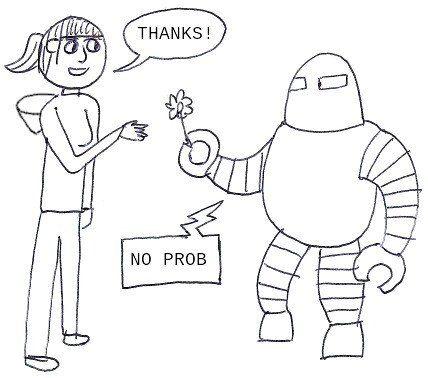
Do Not License Proprietary Software. Pirate It Instead.
Ideally, the goal for copyright abolitionists would be to develop Free/Libre Open Source Software (FLOSS) which is competitive with proprietary software. It is also necessary for us to build a financial support structure which is able to fund development of FLOSS in order to compete with the proprietary developers who benefit from copyright. As much as possible, money that would have been directed towards the development of proprietary software needs to be redirected towards FLOSS development. The first course of action, when looking to liberate oneself of proprietary software is to find a FLOSS replacement -- GNU/Linux to Windows, LibreOffice to Microsoft Office, GIMP to Photoshop, 7zip to WinRAR, etc. -- and these are often adequate for casual use. However, especially for those who require the proprietary software for professional purposes, the FLOSS replacements are not adequate replacements in order to be competitive within their own profession. Forbidding oneself of use of the proprietary software in this situation is simply to cause unnecessary harm to oneself.
Wanting to keep on the straight and narrow, some people spend hundreds of dollars per year to license some of these proprietary programs legitimately. This is harmful to the ends of copyright abolitionists, because all of that money spent on licensing goes towards advertising for proprietary software, lobbying government to expand copyright protection, and further improving the proprietary software to have a greater competitive edge against FLOSS. Copyright abolitionists, wanting to destroy proprietary software entirely, must prevent these outcomes by cutting off income for proprietary developers. Given the choice, do not legitimately license proprietary software. Try your best to safely obtain an illegitimate copy. This way, although you are not helping to further FLOSS development, at least your money is not going towards expanding the copyright regime. You may feel guilty about it, but consider that this is social conditioning imposed upon us by the copyright regime. How much money has been spent on advertising campaigns to guilt-trip the public about downloading software, music, and films? The more money the industry makes, the more resources they have to continue guilt-tripping the public to further entrench copyright as some kind of eternal moral truth and to shut down dissent.
It is easy to say FLOSS developers should just be better. However, FLOSS developers will never win this fight because the financial support structures were not designed with them in mind. The current system of software licensing has been the assumption of the software industry for the past forty years, and there are not many incentives to try something new. The only way to make progress on this front is by forcing the hand of the industry, by acting as though copyright already does not exist. In this way, new methods of funding software development beyond copyright will need to be pursued by the industry. Ultimately with these new methods, the proprietary software developers may no longer see a benefit
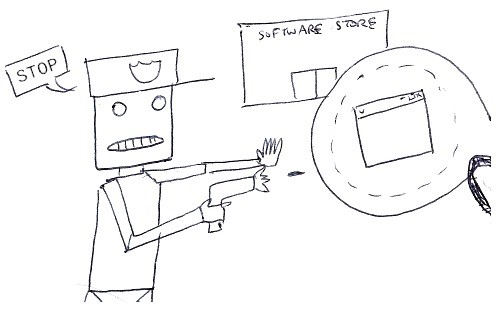
to locking down their code. Developing a FLOSS replacement will no longer be necessary because FLOSS will be the norm, even for the big corporations.
Eventually the guilt-trips will end, and the public will come to expect FLOSS and shun developers who rely on copyright to fund their work. The only way this dream can be fulfilled is if we stop giving money to support the enemy. Do not license proprietary software.
What is the Pirate Party?
The first political party to call itself the Pirate Party was the Swedish Pirate Party, founded by Rick Falkvinge in 2006. Other countries quickly formed their own Pirate Parties which followed similar principles. The Swedish Pirate Party started out as a party dedicated mainly to the following issues:
- The total abolition of copyright, patents, and trademarks. Sometimes these three are collectively called intellectual property but it is better to avoid this term as it conceals important differences between these three legal protections.
- A right to personal privacy against government and corporate surveillance.
- Government transparency and protections for whistleblowers.
This is a very sparse program, and in countries without proportional representation it is difficult for single-issue parties to be elected. This has led to debates within the Pirate Party between two factions. One faction is in favor of a very narrow platform close to the original issues of digital rights, and the other faction is in favor of a broadly social liberal party which is in favor of stronger civil liberties in all areas. Which faction is stronger varies according to each Pirate Party, but in general the core principles are built around tech-literate social liberalism that takes a uniquely radical stance on copyright abolition. There is an economic left/right syncretic aspect which seems to be common to social liberals such as the UK Liberal Democrats. The idea of the Pirate Party not having a strong position on economic left/right is something that was explicitly mentioned early on by the Swedish Pirate Party.
Today, the Pirate Party has seen some success in Europe having been elected to national government in Iceland, Czechia, and Luxembourg. Elsewhere, the Pirate Party is relatively small or totally insignificant, especially where third parties are difficult to establish such as in the United States. Of course as a relatively new party organized around a sparse program, it is understandable that today growth would still be slow and sporadic. Nevertheless, as technology becomes a more central topic within politics there may be more interest from the public in electing Pirates to office.
Although electoralism is not the path forward in any respect, there are still lessons that may be learned from the experiences of the Pirate Party and there may be potential allies within the party. There are anarchist sympathizers (as well as "libertarian possibilists") within the party who understand the value of direct action over electoralism, and who see the party more as a vehicle for education and networking rather than intending to really win elections and implement change from above. Many Pirate Parties are also advocating direct democracy and participatory democracy, which is another decent position beyond copyright abolition.
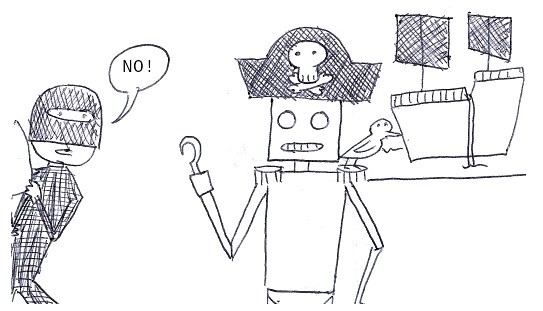
Read from top to bottom, then left to right
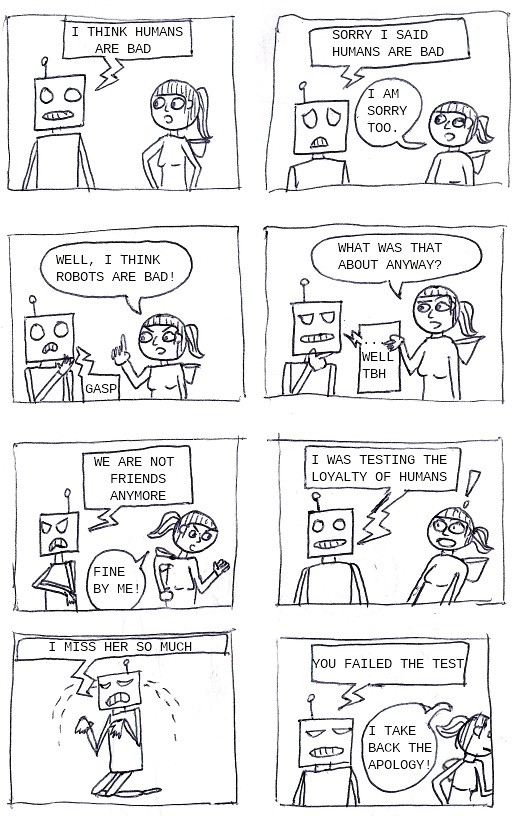
Parler: Same Shit, Different Company
Once again, conservatives are complaining about being censored by Big Tech. Mostly they are not referring to actual bans or takedowns, but annotations provided by social network services like Twitter and Facebook to mark posts containing controversial or disputed claims. Some are discussing the option of breaking up Big Tech with anti-trust legislation, or replacing Section 230 with language requiring social network services to remain politically unbiased in their content moderation. Another option gaining traction in conservative circles is an exodus from Facebook and Twitter to a platform with more lax or unbiased moderation policies. One of the social network services gaining some traction in mainstream conservative circles is Parler, a service launched in 2018 with a commitment to unbiased moderation policies. Parler is not the first such proposal. Some may recall Gab, which was launched in 2016 as an censorship-free alternative to Twitter. Gab is still around today, but it only appeals to a niche userbase of far-right extremists with a highly insular user culture. In two or three years there is a good chance Parler will end up exactly as Gab is today, but with a userbase of relatively more mainstream pro-Trump conservatism. As time goes on, this userbase will also develop its own highly insular user culture divided from the Big Tech platforms like Facebook and Twitter.
Some conservatives are delusional enough to believe they are the silent majority, but reality never pans out that way. Between a large group of people opposing them, and a large group of people who are totally apathetic to politics, conservatives are significant slice of the pie but not a majority. Of course leftists are being censored too, but the leftist understanding of the problem is completely different. They key issue here is that the actions of Facebook and Twitter are not motivated by immoral Silicon Valley elitism, but a rational calculation by the leadership of those companies to bring the greatest long-term profits to their investors. By switching social network services without challenging the incentive structure, the for-profit company behind Parler will either stick to a niche audience, or copy the behaviors of the Big Tech companies, or die out. Conservatism's ideological weakness is its inability to identify structural, systemic causes for social failure. Conservatives can only blame the corruption of our rulers, but never the existence of rulers or our relationship to them. The truth is that replacing a corrupt ruler with a benevolent ruler will not result in a better society in the long-term.
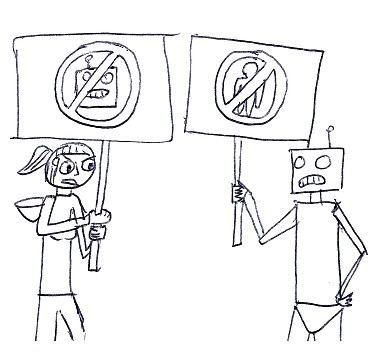
Just as the political problem is to give everyday citizens more control over their own lives, the problem of content moderation on social network services is to give ordinary users more control over the platforms they use. A benevolent dictator is better than an outright corrupt one, but still oppressive and damaging to a community in the long-term. Benevolent dictatorships evolve into outright corrupt dictatorships in a short amount of time. As more people come to this realization, options like self-hosting, peer-to-peer, and federated services will see more mainstream appeal. If any new platform does nothing to challenge the actual relationship between user and service provider, then prepare for the same shit from a different company.
No-Military-Use Restrictions Are Bad For Free Licenses
Freedom 0 of the free software definition: The freedom to run the program as you wish, for any purpose.
There are renewed discussions going on about adding a no-military-use restriction to free software, in light of new technologies like facial recognition software which could potentially see use in that domain. After all, the GNU GPL already forbids incorporating free software into proprietary software (this is called "copyleft"), so is this additional restriction so bad? There are a number of general reasons why this is a bad idea but for copyright abolitionists there is one specific reason. First it is necessary to understand two things the GNU GPL does.
- Grants users of the software more permissions than they otherwise would have under the default restrictions under copyright law.
- Prevents downstream developers and distributors from burdening the software with any further copyright restrictions.
Many critics of copyleft misconstrue its purpose to be an attack on proprietary software developers. Copyleft is not a sword; copyleft is a shield to protect the newly granted freedoms that the GNU GPL provides. Copyright abolitionists are against the author having any authority whatsoever against the user or downstream developers. The author should be released from any attachment to the software. Copyleft is a stopgap measure by which copyright law is used to defend users against copyright law. Once copyright is fully abolished, copyleft will have served its purpose and will no longer be relevant. However, the goal is not merely to abolish copyright, but to abolish the military and the state. So, one might reason that it is fine to leverage state power, through copyright law, to defend against state power. Once the state is abolished, the no-military-clause will also have served its purpose and will no longer be relevant. The issue is complicated because realistically, abolition of copyright is on a different timescale than abolition of the state. Copyright will be abolished much sooner than state power, unfortunately.
The military and nation states in general do not deserve sympathy. Their inability to use the software is not the main harm a no-military-clause would do. Rather, such a clause represents an attempt to use legal authority to prohibit a specific kind of use, and therefore attaches the software to the author once again. What is more important than hindering military use of a particular program is to condition society to disregard the specific rights of the author. A developer cannot be held responsible for their software being misused, any more than a gun manufacturer can be responsible for their weapons being misused. Once the item is released from the manufacturer's possession, the responsibility fully lies with the recipient. Copyright abolitionists must find different ways of opposing the military without reinforcing the fiction of the specific rights of the author.


Digital technology is rapidly transforming society around us, and cyberspace is caught between a false choice of government oppression and corporate oppression. Geeks can leave politics alone, but politics won’t leave geeks alone.
This zine was created to help the spread of DIY culture in cyberspace instead of the sanitized corporate bullshit that has become so profuse. The goal is to build a culture of liberation and resistance against systems of digital surveillance, censorship, and social control.
This issue features four essays:
- Do Not License Proprietary Software. Pirate It Instead.
- What is the Pirate Party?
- Parler: Same Shit, Different Company
- No-Military-Use Restrictions Are Bad For Free Licenses

























